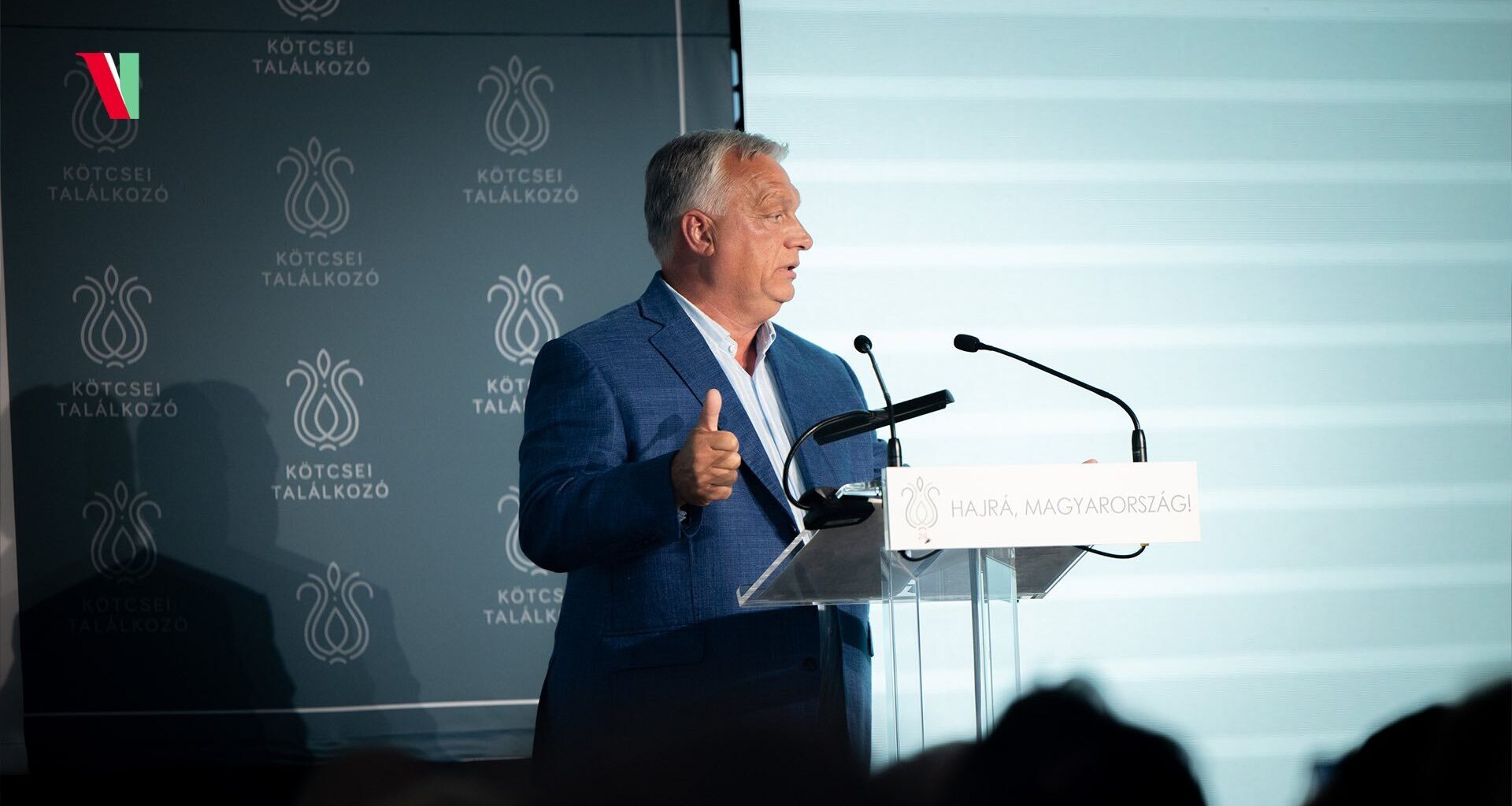Hungarian Prime Minister Viktor Orbán has issued a warning that the European Union risks “falling apart” within the next decade unless it undergoes fundamental reform.
In a wide-ranging speech on Sunday, September 7th, the conservative leader said the EU had entered “a state of disintegration and fragmentation” and would be remembered as “a noble attempt with a depressing result” if current trends continue.
He argued that Europe had been poorly led for years, falling behind the United States in economic performance and political influence.
In 2008, the United States accounted for 23% of the global economy and the EU 25%, he said. Today, the U.S. share is 27%, while the EU has slipped to 17.8%.
Orbán claimed the European project faltered because leaders tried to build not just a common market but also a political and monetary union centred on the euro. “Everyone who deals with this question says it is only a matter of time before it cracks, breaks, splits apart,” he said.
He suggested that even if the bloc manages to pass its next long-term budget for 2028–2035, that may be the last one.
The European Union is falling apart in front of our eyes. Only a fundamental reorganisation can stop the forces that are pulling the Union apart. If we fail to act, the next one will be the last EU-budget! pic.twitter.com/6Gl3YAyBBK
— Orbán Viktor (@PM_ViktorOrban) September 7, 2025
To preserve European cooperation, Orbán proposed a sweeping restructuring of the EU into “concentric circles.”
At the outer ring, countries would cooperate only on defence and energy security—a group he said could include Turkey, the United Kingdom, and even Ukraine.
A second circle would comprise a common market.
A third would involve members of the eurozone with joint fiscal policies.
A fourth and innermost circle would be for states wishing to pursue deeper political union, with binding rules on issues such as gender, migration, and the rule of law.
If the union can switch to such a system, then the great idea of European cooperation, the EU, can survive the next ten years, Orbán declared, adding that if this does not succeed, the union will fall apart.
The Hungarian leader also repeated his criticism of EU financial policies, saying Brussels’ push for “common indebtedness” was an act of desperation aimed at holding the bloc together.
On Ukraine, Orbán insisted that Kyiv’s accession to the EU would inevitably drag the bloc into war with Russia. It is impossible that the other member states would not rush to the aid of their attacked or embattled partner, he said, reiterating his opposition to Ukraine’s membership bid.
The prime minister framed the upcoming 2026 election as a stark ideological crossroads for Hungary, contrasting the opposition’s proposed pathway, “the Brussels model,” with his government’s “Hungarian model” of economic sovereignty.
There are only two paths for Hungary: one leads to Brussels and ruin, the other leads to sovereignty and stability.
He claimed that alignment with the European Union—on common debt, phasing out utility price caps, decoupling from cheap Russian energy, ending family support schemes, adopting progressive taxation, and accepting pro-migration and climate policies—would lead the country toward “chaos and poverty,” and would be tantamount to surrendering national control.
Hungary has been the “black sheep” of the European Union ever since Orbán and his conservative Fidesz party came into power fifteen years ago. The government has drawn the ire of EU liberals and Brussels bureaucrats for pursuing a sovereign foreign policy based on Hungarian interests, defending its borders against illegal migration, opposing gender ideology, and rejecting to provide military aid to Ukraine.
Budapest has been punished for its stance with Brussels withholding billions of euros in EU funds. Hungary is also being fined €1 million a day for protecting its own borders against the influx of illegal migrants.
Recent opinion polls indicate that Fidesz and its main challenger, the Tisza Party—which belongs to the liberal-centre-right European People’s Party—are tied ahead of the elections scheduled to be held next Spring. Conservative pollsters put Orbán’s party in the lead, while pollsters linked to the opposition believe Tisza is the frontrunner.
